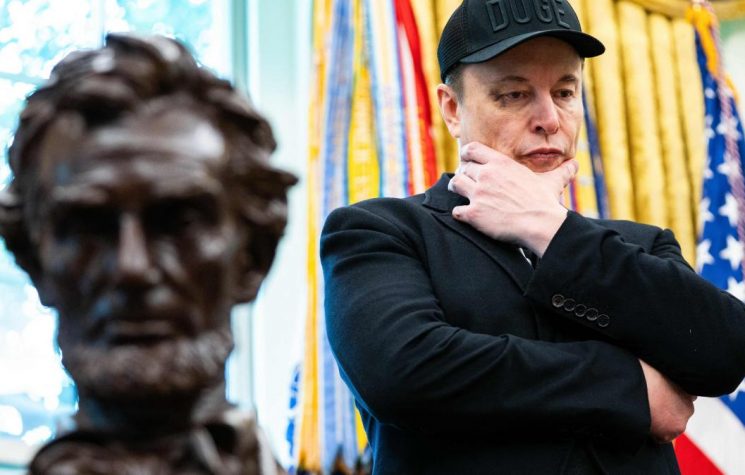The 19th century Baptist Particular preacher from England, Charles Spurgeon, is best known for the one-line wisdom: “A lie spreads half way around the world while the truth is putting on his shoes.”
But what of half-truths, do they spread a quarter-way, or a third? Are these more like lies, or more like the truth?
By now the half-truth that President Trump announced the pull-out of US forces from its activities aiding the Kurdish separatists in Syria, on Monday, for the sole purpose of distracting the whole discourse from the impeachment proceedings against the sitting president, has spread at least some portion around the world by now.
A half-truth? It is indeed true that Trump had said the time had come for the US to extricate itself from its series of “ridiculous endless wars”, something which, before Trump, no Republican president in living memory has said.
The impeachment itself has the look and feel of yet another Democratic Party impeachment stunt, one which in all reality will have a difficult time getting through the House of Representatives and perhaps an impossible time getting through Senate, given Trump’s overall popularity among the energized base which numerous critical Senators will rely on. If the process would go through to the Senate, it is Chief Justice Roberts that would preside on the trial part, and being bound by his conservative record, it is nigh impossible that Roberts would be friendly to efforts to remove Trump on the extremely squishy grounds they would be presented on. After all, creating such future precedents would ultimately have a destabilizing effect on the executive branch, thereby threatening the constitutional framework of checks and balances between the two branches in question.
But the controversy surrounding the impeachment itself would be enough to raise serious questions in the minds of at least 1% of voters, to at minimum refrain from voting. That’s all Biden would need if he then, in turn, focusses his campaign on a few critical swing states. That’s what the strategy for Biden might hinge on – or is it? If the impeachment process goes through to the end, but ultimately fails, there is probably no other figure in American politics that could use the failure alone to energize his base to such a degree that the failure alone is part of what delivers victory to Trump towards a second term.
Whatever the case, for certain there is more here than meets the eye to this, and in politics nothing is random, nothing is coincidental. There is no doubt that there is a connection between the impeachment proceedings and Trump’s sudden announcement on Syria and the Kurdish YPG.
The honest question right now is simple enough: Is Donald Trump’s announcement a mere distraction from moves to impeach him?
No, it goes deeper than this – and here’s why.
While this wasn’t the first time either he as president, nor as candidate, he had said as much, along with this announcement came a specific and determined public order of sorts: American troops would be pulled back from northern Syria as the Turkish military prepares to clean up Kurdish forces active in the region. Under the Obama administration, and – if we are to believe the sitting president – reluctantly under the present one too, Kurds have enjoyed a degree of support towards the US plan to partition Syria.
The rise of anti-war Republicans is a relatively new phenomenon, something which came to be broadly known to the public and outside of its own previously insular sphere, through the campaign of former Republican presidential candidate Ron Paul in 2012 – a strong libertarian figure whose anti-war position was prescient and based in integrity, and whose campaign was frustrated by the neo-conservative establishment running the Republican Party.
This is far from a mere distraction, and has a far deeper meaning, motivation, and possible outcome. At least two times during Trump’s presidency, he has announced some curtailment of the US efforts in Syria, declaring that the US had succeeded in defeating the real threat of ISIS.
This threat of ISIS, incidentally, was the stated aim of the US involvement in Syria under the Obama administration. It was only after a few years by way of the slippery-slope of mission creep that this involvement began to openly declare the overthrow of the decidedly anti-terrorist administration of Bashar al-Assad as its ‘real’ primary aim. Trump’s move to ‘declare victory and go home’, a declaration that was in reality made possible by the Russian aerial campaign, was nevertheless met with some significant push-back.
And this push-back, both times, came in the form of moves from House Democrats to start impeachment proceedings. These calls for impeachment, for various and apparently random ‘whatevers’, all long before the final findings of Mueller which seem to have exonerated Trump, had their intended effect.
Yes, both times Trump was forced to continue the US misadventure in Syria, and after he reversed his de facto position on the matter, both times indeed, impeachment proceedings magically disappeared.
To wit, after the 2017 Shayrat missile strike which Trump ordered to ward of impeachment threats, the infamously anti-Trump CNN declared that Trump was finally acting like a real US president [Insert wise comment here that in America, being presidential has to involve bombing people or things in the eyes of liberal establishment media].
Trump doesn’t forget those times he had his nose rubbed in it, as Democrats threatened to work with never-Trump Republicans in the pockets of AIPAC and the Military Industrial Complex, and the so-called intelligence community [something something deep state ], to frustrate his proposed policy changes. Along with appeasing these directly through his de-facto reversal on Syria withdrawal, he ramped up sanctions on Iran to appease AIPAC and even moved to out-do his predecessor on military funding – all within a geopolitical environment that sees Trump calling on European partners to ‘finally’ do their part to finance NATO.
Now, we suppose we’re just going to have to wait for the ‘allegations’ that Trump worked hand in hand with a foreign government – not Russia, not Ukraine – but rather this time Turkey, to coordinate their attack on the YPG to time nicely with Trump’s strategy to frustrate calls to impeach him.
Maybe Trump’s opponents will go so far as to claim that his push to expand NATO’s presence in Greece was timed precisely to get Erdogan’s attention to make the Turkish move against the YPG here and now. That means we should be on the look-out for transcripts of ‘Trump-Erdogan conversations’, and more ‘insider leaks’ from ‘whistleblowing’ darlings of the deep-state. As Matt Taibi wrote in Rolling Stone, the real whistleblowers like Manning and Assange, wind up persecuted, tortured, imprisoned. The Ukraine ‘whistleblower’, he astutely observes “isn’t a real whistleblower”. Others less known wind up black-listed, permanently unemployed, doxed, and so it goes.
But if Trump is anything, he’s a man with a larger-than-life ego, but more than that he is underestimated as an intelligent and strategic thinker, and moreover, doubly excels at symbolic messaging. If his opponents really imbibe the propaganda they put out against him, they’ll always be in for one surprise after another.
So if in the past, impeachment was used as a reaction to his calls to end the Syrian campaign, and forced him to essentially re-think that apparently unrealized campaign promise – then now impeachment is being used against Trump to punish him for his moves to drain the swamp in Ukraine. Yes, a swamp filled by Victoria Nuland with over $5 bln dollars, Biden’s son Hunter’s unexplainable and magical seat upon the Ukrainian natural gas concern, Burisma, and the blood of the thousands upon thousands of innocent civilians killed by the Obama installed Kiev Junta in its ethnic cleansing operation in the former eastern regions of Ukraine.
With impeachment being used as a Democratic Party campaign/immunity ploy to perhaps elect or, why not, just install Biden, then what’s Trump’s interest on holding back on his peace plan for Syria? Surely this makes sense for Democrats as neither Pence nor any other Republican has either any appeal against just about any Democrat including Biden.
But Democrats didn’t plan that Trump would use something perceived as a weakness, a point of capitulation, as a bargaining chip, a card, a strength.
Just think of how Trump could map his options and possible outcomes out on a semiotic flow chart, and create multiple contingency plans. This has the look and feel of a well-planned maneuver, one that Trump will emerge the stronger from. In many ways it all begs the question, why do his opponents continually fall into his traps? Maybe this is what happens when Democratic Party strategic decisions are made by committee, by lobbyists, by pollsters interpreting the pseudo-data from their own convoluted push-polls. Maybe this is what happens when people really start to believe the hype they created about their opponent.
Trump’s team has counted the votes against him in the House and Senate – and guess what? These probably include the same never-Trump Republicans that lined up against him previously over his failed attempts in the past to wind down Syria. So what motive would Trump have now to keep these same war-hawks happy about Syria? He can only use Syria to his advantage here and now.
And keeping it real, Trump is interested primarily now in his re-election, and being able to implement whatever he can manage in his second term – but he has to get there first.
All in all, this means that rather than Syria being used against him under threat of impeachment, Trump can use Syria withdrawal threats to get those never-Trump Republicans to get back in line – yes, a little party discipline and solidarity.
Trump has had to let go on Syria a few times, and for all we know it was always set up as one of those cards he could play to survive. Maintaining a presence in Syria lines up generally with his policy against Iran, but claiming that he’s against such a presence allows him to play that card when it’s needed.
Conclusion
And on Trump’s end? He has a win-win.
If Democrats buckle on impeachment, he wins big. If they do not buckle and take impeachment a far as it can go, and prolong the process through the election, they await Chief Justice Roberts jurisprudence and Senate Republicans, taken together, doesn’t look good. If Trump can, as he likely will, use that to his advantage, he wins some and loses some, it will mean some recalibrating on swing states.
If Democrats don’t buckle and Trump can continue to make big news on ending US presence in Syria, he might make more moves against US presence in Syria, like at Al-Tanf, and all together win even more points with anti-war Republicans, and even Democrats who voted Trump on issues including the employment economy as well as foreign wars.
Swing states and that 1%, there we go again, Democrats so anti-war and suspicious of China’s relationship to the bleak US employment reality, that they voted Trump. And anti-war Republicans themselves aren’t some small grouping.
Overall, as the American Conservative put it together based on polling done by Politico, “Trump’s December announcement that he would withdraw US troops from Syria, polling data from Morning Consult/Politico shows that 49 percent of Americans support the decision while 33 percent oppose it.” The same article goes on to quote the [in other cases very unreliable] Glenn Greenwald of the [limited hangout] Intercept – “Trump voters overwhelmingly support withdraw by 76 percent to 14 percent.”
And, by the way, this also helps make it clearer why the DNC made a full reversal on Tulsi Gabbard’s ejection from the race for the nomination – they need to keep that segment of the ‘audience’ engaged until future notice, especially if Trump can angle to keep ahold of Democrats and Republicans who value foreign policy and war above most anything else. Now Tulsi’s magical reappearance in next week’s 4th debate, after missing the 3rd, makes a lot more sense. She previously showed she had a game-mind when she strategically attacked Harris’ attack on Biden’s alleged racism – showing that she could win support from [white] Americans fed up with being accused of such, and that she understood that Biden was the DNC darling, making her defense of him a clear indicator what they could use her in the debates later on, a brilliant insurance policy on the part of Tulsi.
If Dems don’t drop impeachment then he scores high in those above broken-down demographics, and likely score big enough to reverse the damage done by any impeachment proceedings that threaten his re-election, as they ultimately fail anyhow at the process level.






































